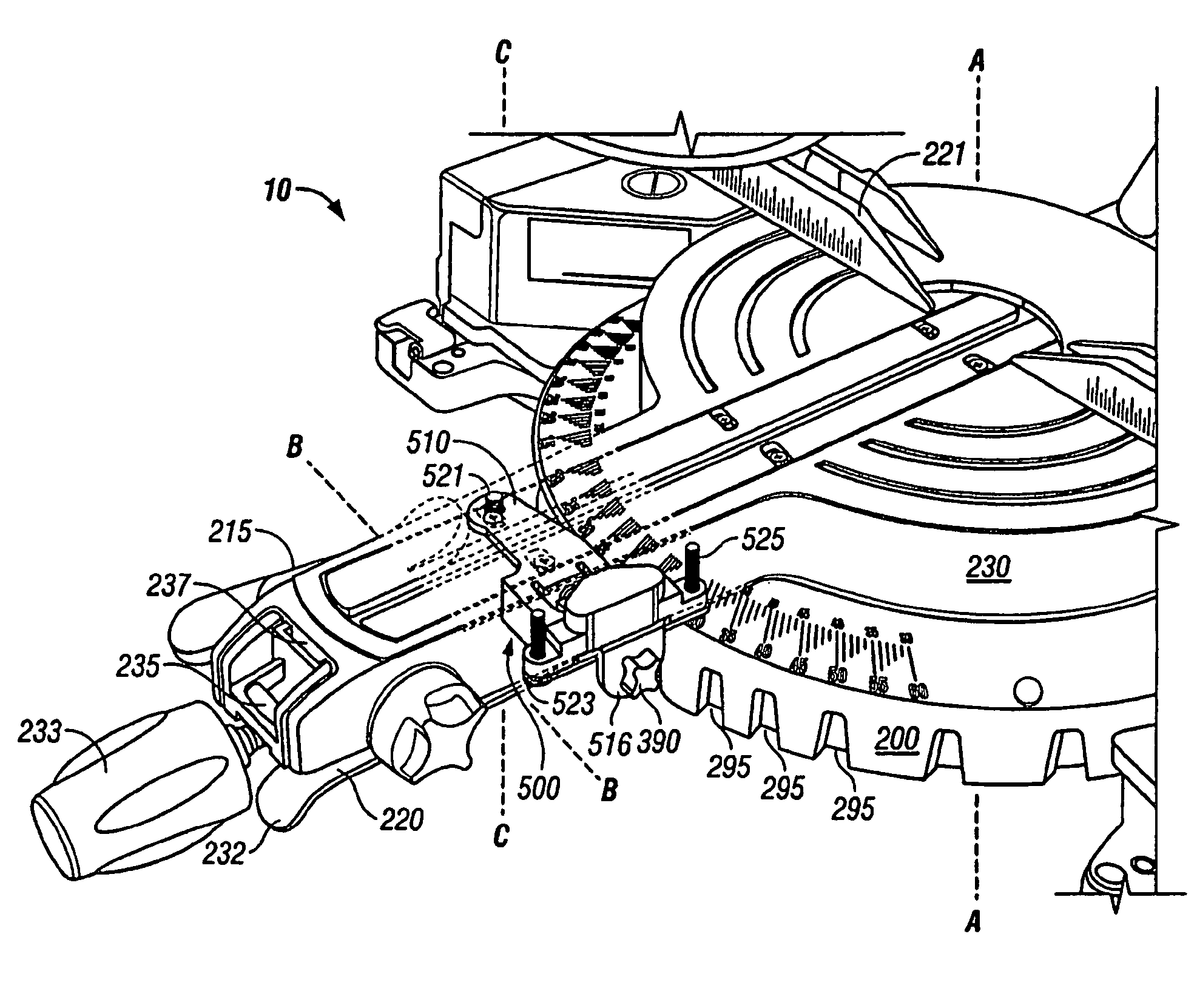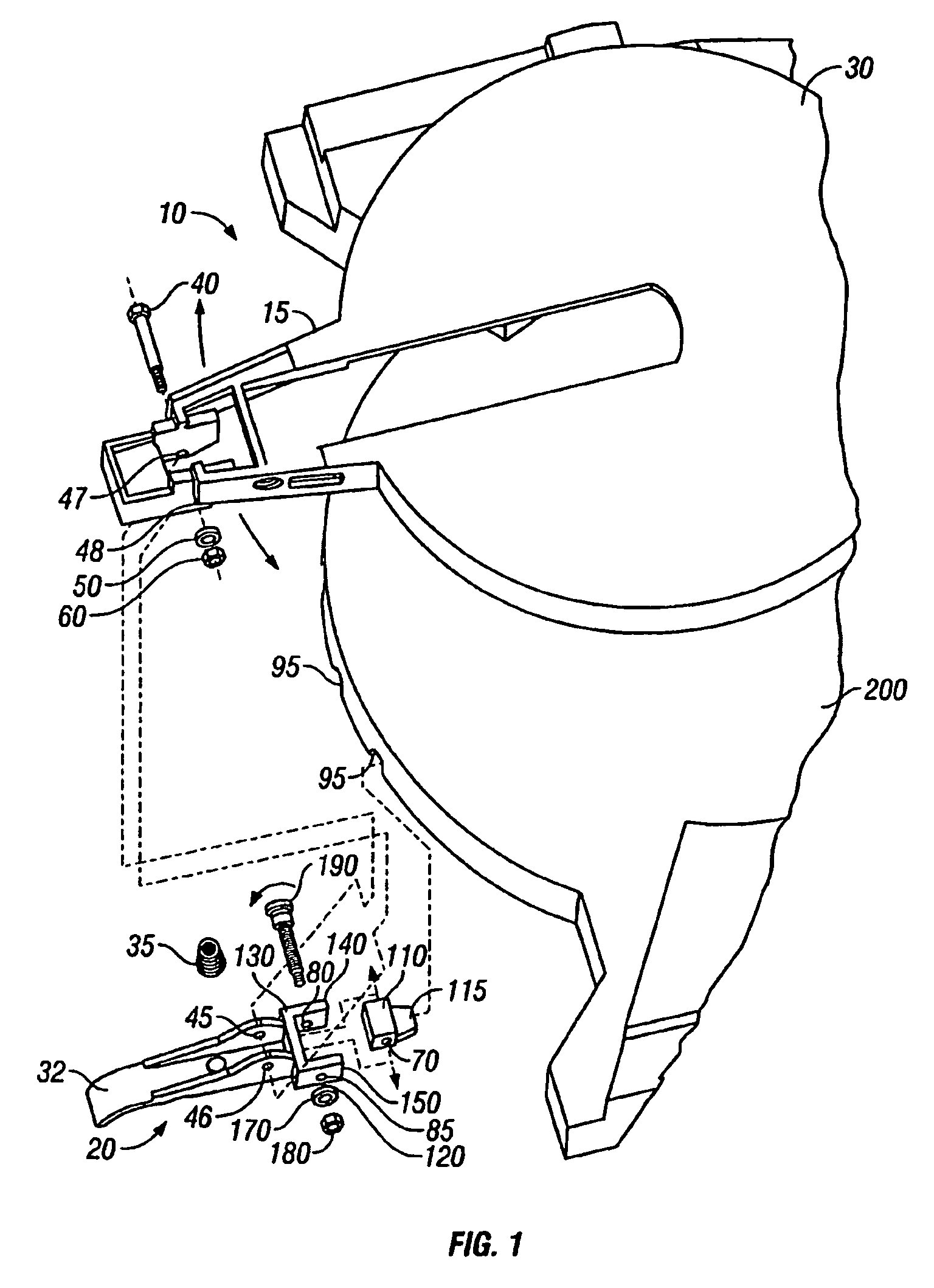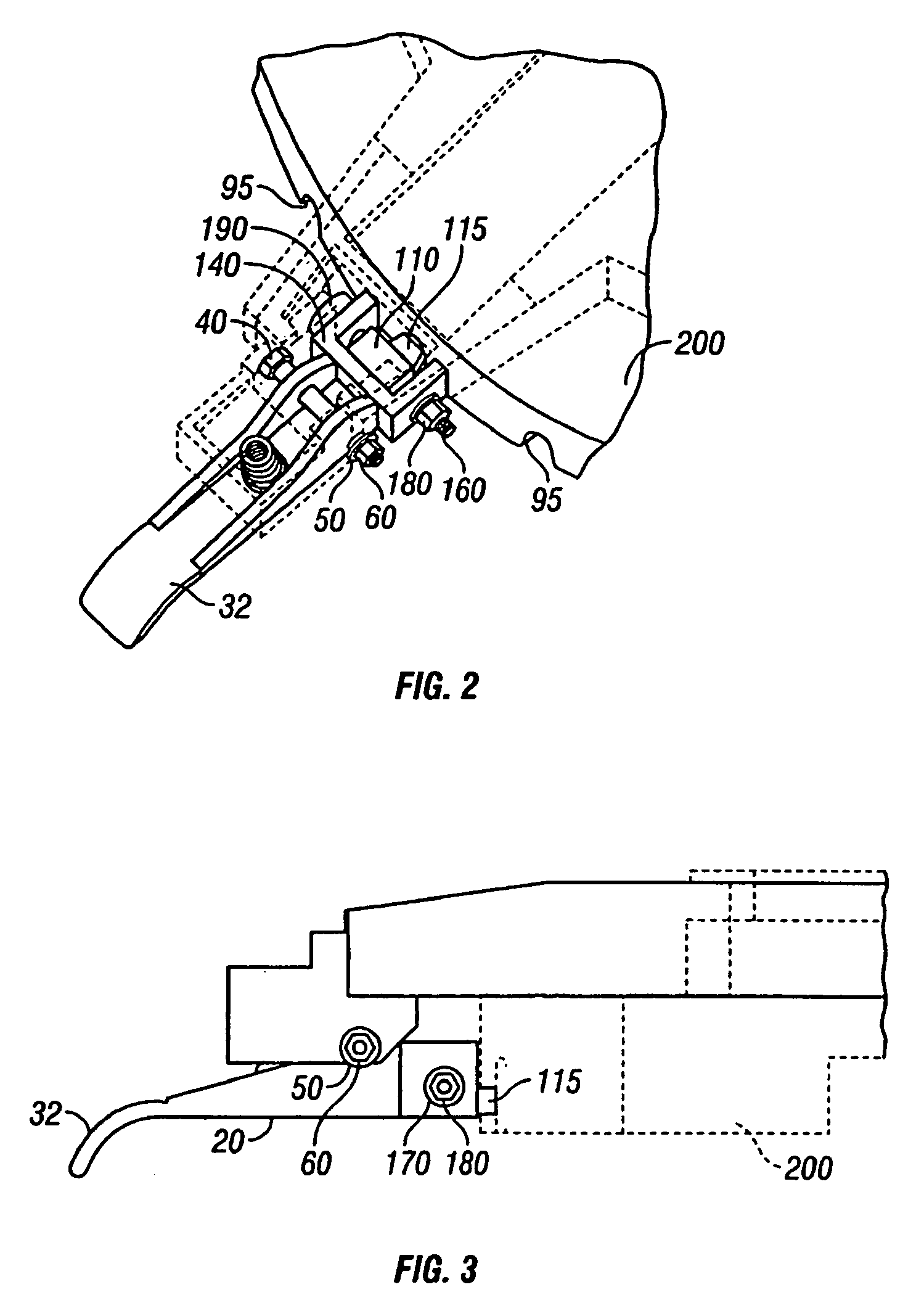Cutting assembly having multiple turntable locking mechanisms
a locking mechanism and cutting assembly technology, applied in the field of power tools, can solve the problems of inability to use with smaller table saws or miter saws, inability to use with table saws with other than rectangular tops, and inability to adjust the arrangement finely, so as to achieve economic and efficient effects
- Summary
- Abstract
- Description
- Claims
- Application Information
AI Technical Summary
Benefits of technology
Problems solved by technology
Method used
Image
Examples
Embodiment Construction
[0042]Turning first to FIG. 1, there is illustrated, in accordance with a first embodiment of the present disclosure, a miter saw assembly 10. The miter saw assembly 10 includes a stationary base 200 and a turntable 30 that is rotatably mounted to the base 200. A cutting tool (e.g., power saw) is mounted to the turntable 30 so that rotation of the turntable 30 with respect to the base 200 in turn moves the cutting tool to a desired miter angle. The rotatable turntable 30 has a forwardly extending arm portion 15 to which a movable lever 20 is secured. The lever 20 is operable to selectively engage one of several recesses 95 in the base 200 to lock the turntable 30 relative to the base 200 at a selected angle of cut. In an embodiment, each of the recesses 95 is positioned to correspond to a particular angle for a common miter, e.g., 0°, 15°, 30°, 45°, etc.
[0043]FIGS. 1-5 illustrate a lever 20 including an elongate lever body portion and a yoke portion 120 at an end of the lever body. ...
PUM
 Login to View More
Login to View More Abstract
Description
Claims
Application Information
 Login to View More
Login to View More - R&D
- Intellectual Property
- Life Sciences
- Materials
- Tech Scout
- Unparalleled Data Quality
- Higher Quality Content
- 60% Fewer Hallucinations
Browse by: Latest US Patents, China's latest patents, Technical Efficacy Thesaurus, Application Domain, Technology Topic, Popular Technical Reports.
© 2025 PatSnap. All rights reserved.Legal|Privacy policy|Modern Slavery Act Transparency Statement|Sitemap|About US| Contact US: help@patsnap.com



